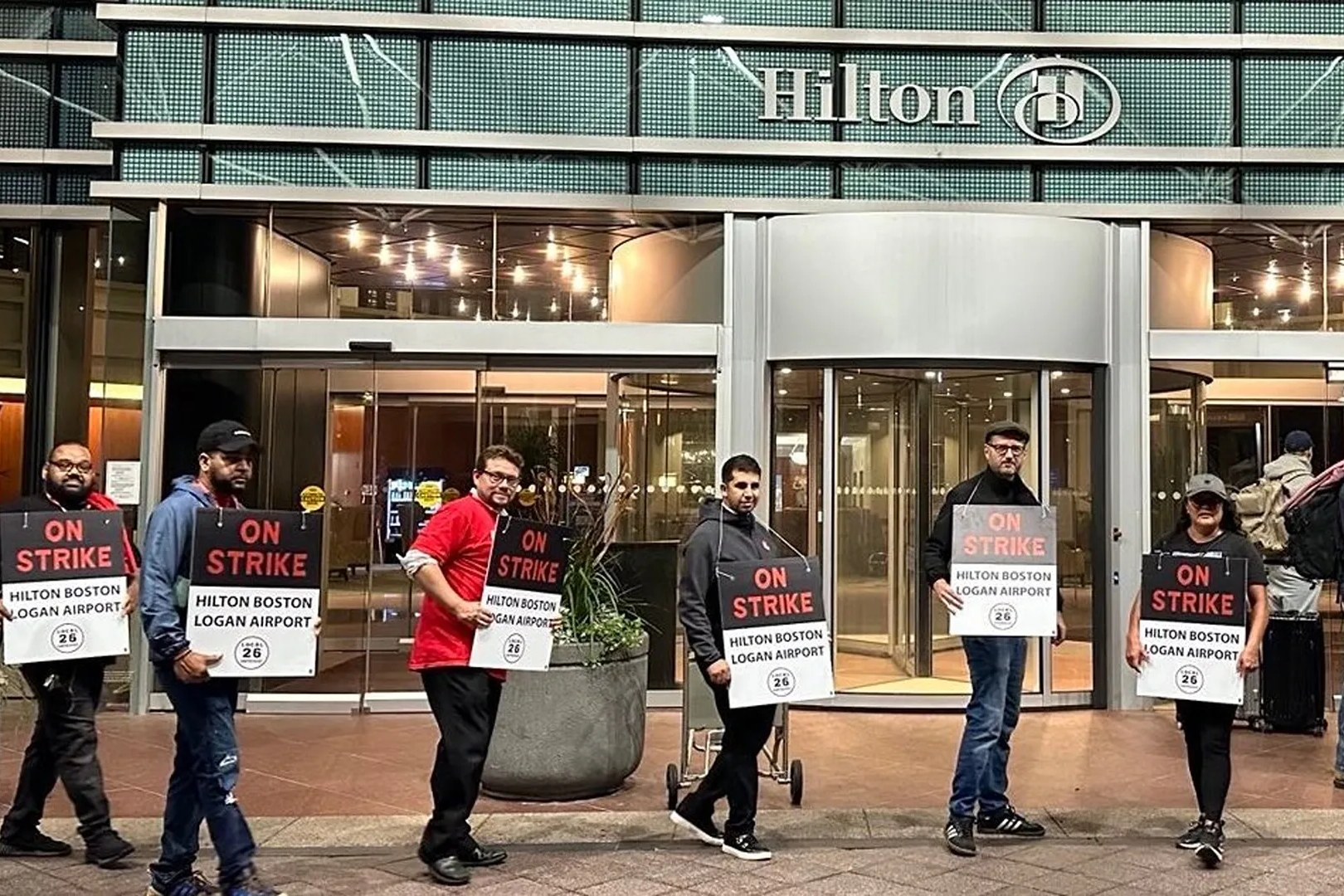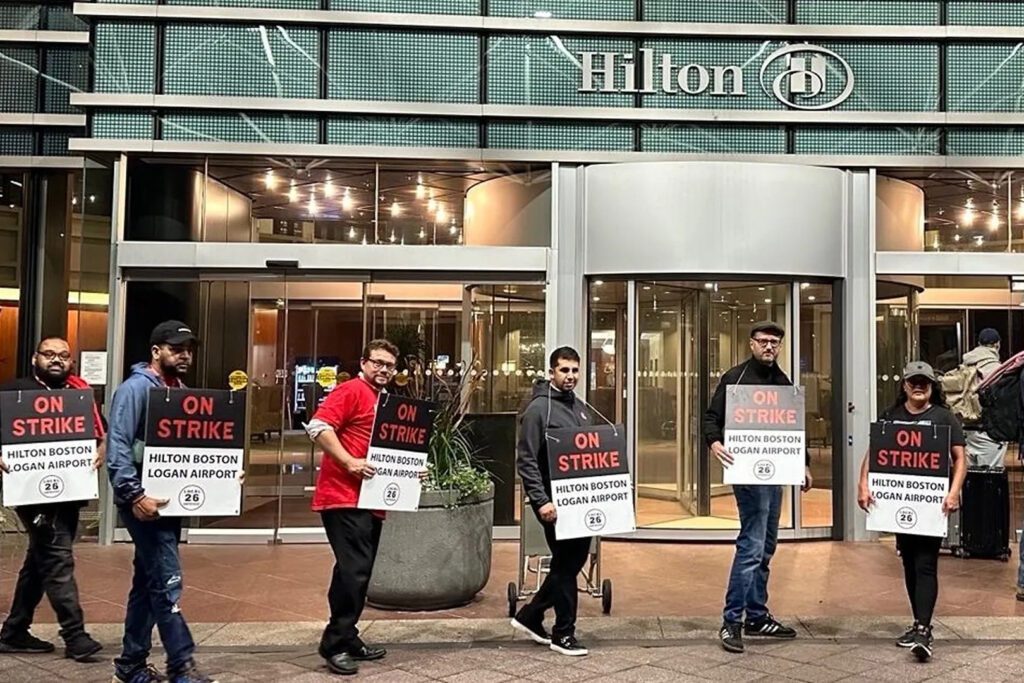
[ad_1]

Skift Take
About 40,000 hotel workers have contracts expiring over the next year. So these few days of strikes might just be a preview of coming attractions at several dozen hotels.
Sean O’Neill
Thousands of hotel workers went on strike across major U.S. cities between Sunday and Tuesday. The 21 strikes, organized by the Unite Here union, targeted properties branded by the major hotel groups Hilton, Hyatt, Marriott, and Accor.
Why it matters: Labor disputes are heating up, especially over daily housekeeping. The strikes expose the hotel company’s struggles to balance recovering profits with worker demands for better pay and working conditions.
What to watch: The strikes were set to end Tuesday.
In a June interview with Skift, United Here’s new president, Gwen Mills, said about 40,000 hotel workers in 22 markets in the U.S. and Canada have union contracts that might expire in the coming year. “Hotel staffing per occupied room is down while revenue per room is up,” Mills said. “So hotels are making plenty of money. We want increased wages.”
By the Numbers
- 9,376 workers were on strike in 9 cities on Tuesday. That’s a small slice of the 2 million workers employed by hotels nationwide.
Key Details
- Cities impacted: Boston, Greenwich, Honolulu, Kauai, San Diego, San Francisco, and San Jose. Strikes in Baltimore and Seattle have ended.
- The other side: Hotel chains say they’re committed to negotiations but have put in place contingency plans to reduce disruptions for guests.
Key Disputes
- Wage disparities: In Boston, workers want a $10-an-hour raise phased in over four years. In San Francisco, the union calls for more consistent staffing levels and “fairer workloads.”
- Daily room cleaning: This is a major point of contention, with housekeepers pushing to reinstate this practice of daily room cleaning. “When you eliminate the daily housekeeping, that means that some rooms that used to be cleaned every day are now dirtier and harder to clean on average within the same allotted time as before — creating a heavier workload in a way,” Mills said in June. “The second thing is the expectations of what guests can get for their money aren’t being met.”
- Workload concerns: Housekeepers report being stretched thin and often doing more work than pre-pandemic. Bellhops, doormen, cooks, dishwashers, servers, and bartenders are also taking part in some strikes over wage issues.
Top Talking Points
- “We won’t accept a ‘new normal’ where hotel companies profit by cutting their offerings to guests and abandoning their commitments to workers.” — Gwen Mills, Unite Here President
- “Now is a fantastic time to be a hotel employee.” — Kevin Carey, American Hotel and Lodging Association interim president.
The bottom line: These strikes represent a critical moment for the hospitality industry as it grapples with post-pandemic recovery, labor shortages, and evolving guest expectations.
If demands are unmet, the union threatens to expand to 65 hotels in up to a dozen cities. About 40,000 hotel workers in 22 North American markets have union contracts that might expire over the next year at several dozen properties.
[ad_2]